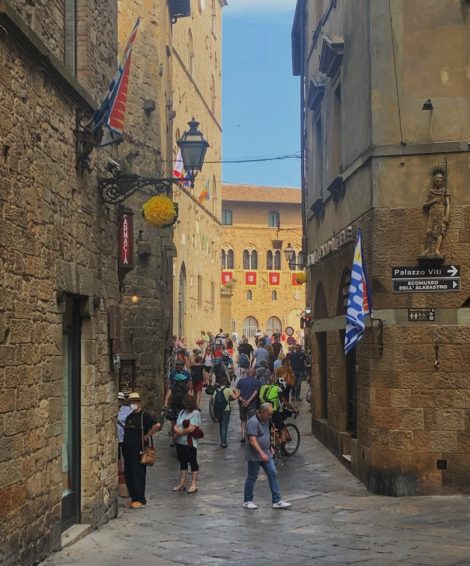|
Digital meets Culture https://www.digitalmeetsculture.net/article/volterra-the-survey-on-the-territory-involving-stakeholders-and-citizens-has-started/ Export date: Mon Mar 31 21:18:57 2025 / +0000 GMT |
Volterra: the survey on the territory involving stakeholders and citizens has started Volterra city center - Picture courtesy of Promoter Srl The case study of Volterra is part of the thematic Axis of Strategic Cultural Planning of WP5 Experimental Demonstration in the UNCHARTED project. The field work aims to reflect, verify and demonstrate how the social values of culture, identified during the UNCHARTED project, have an impact on the strategic planning of cultural policies of city. The worklan started with meeting between project's experts and the representatives of the Municipality continues now with focused interviews to a range stakeholders representing various economic, social and cultural sector of the city. Since 2020 the municipal administration of Volterra has undertaken a strategy of cultural policies that led to its appointment in 2022 by the Tuscany Region as "First Tuscan City of Culture". A rich program of events followed during the whole year covering many different artistic and cultural dimensions. The aim of the study of UNCHARTED is to understand how these policies have influenced the territory from a social, economic and civic point of view. To achieve this goal, Promoter Srl, as a partner of the UNCHARTED project, is conducting a survey targeting stakeholders from different sectors, listening at the territory and involving actively the local community that is in this way called to contribute with their own ideas, reflections and ideas. In March 2023, the participatory activities have started on the territory of Volterra, planned together with the municipal administration, under a coordinated co-creation approach. The work team is engaged during the coming months in a series of interviews with a list of multi-stakeholders, with the aim to cover a significant cross-section of the territory so as to reconstruct a first articulated picture of the impacts of the public cultural strategic planning on the life of the local communities. The actors involved in this phase are composed mainly of protagonists of the cultural and artistic sector (directors of museums, curators of art galleries, theatre directors, archaeologists, designers, artists, etc.) but also by representatives of the economic and social sector (commerce, school, tourism, etc.). The activities will continue in the coming months with an online questionnaire addressed to all citizens and with the organization of a public event to be held in the autumn and which will aim to present the results of the research. Stay tuned to follow our work steps. |